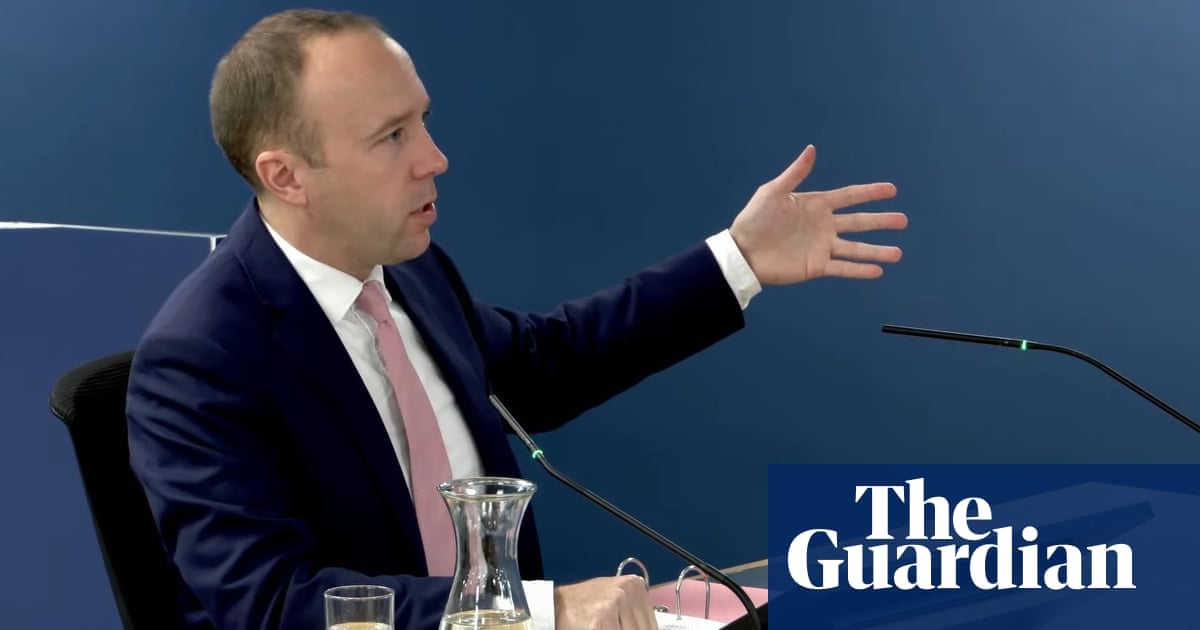
Matt Hancock, the former health secretary, has come in for huge criticism from other witnesses to the Covid inquiry, from scientists to civil servants and political advisers. These are their key allegations, and his responses:
Dominic Cummings, a former senior adviser to Boris Johnson, said in a text message during the pandemic: “I also must stress I think leaving Hancock in post is a big mistake – he is a proven liar who nobody believes or shd believe on anything, and we face going into autumn crisis with the cunt in charge of NHS still.”
On Cummings, Hancock said: “Systems need to be in place so that if there is a malign actor inside No 10 … whose behaviour is unprofessional, the system needs to work despite that.”
Patrick Vallance, the chief scientific adviser during the pandemic, told the inquiry: “I think he had a habit of saying things which he didn’t have a basis for and he would say them too enthusiastically too early, without the evidence to back them up, and then have to backtrack from them days later. I don’t know to what extent that was sort of over-enthusiasm versus deliberate – I think a lot of it was over-enthusiasm.”
Helen MacNamara, a former senior civil servant, said: “What was said in a meeting as actually being under control or going to be delivered or something that was fine … then subsequently a matter of days sometimes, or sometimes weeks later, we’d discover that that wasn’t in fact the case.”
On whether he was a liar, Hancock said: “I was not. You will note that there’s no evidence from anybody who I worked with in the department or the health system who supported those false allegations.”
Simon Stevens, the former head of the NHS, said: “The secretary of state for health and social care took the position that in this situation he – rather than, say, the medical profession or the public – should ultimately decide who should live and who should die.”
Hancock responded: “The Nimbus minutes do show that the NHS asked the question of how to prioritise when there is insufficient NHS capacity and there was a debate around that, as you can see in the minutes, and then I concluded that it should be for clinicians, not for ministers, to make a decision on this basis, and that’s how we went on and proceeded.”
Mark Sedwill, the former cabinet secretary said there was a “clear lack of grip in DHSC [the Department of Health and Social Care]”.
Hancock responded: “It’s normal for the centre, the Cabinet Office, to be sceptical of departments … I think that the toxic culture that you’ve seen at the centre of government, that’s been the subject of much discussion, was unhelpful in assuming that when anything was difficult or a challenge, therefore there was somehow fault and blame.
“That’s a part of the toxic culture that we have seen and some of these exhibits that you’ve just shown demonstrate a lack of generosity or empathy and understanding the difficulty of rising to such a big challenge.”












